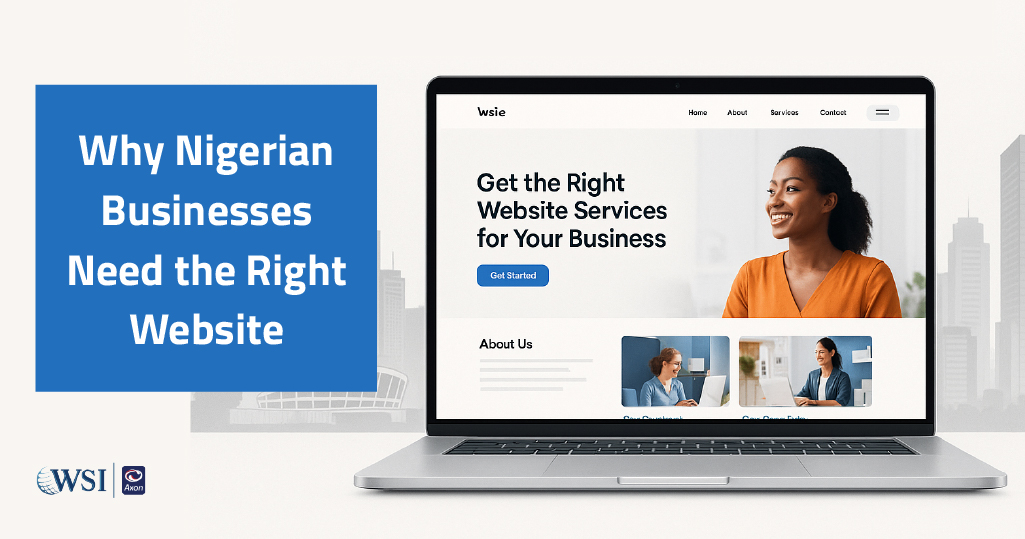Everybody is conversant with the saying, “first impressions last!”
In today’s constantly evolving digital world, your website is usually your first opportunity to create a good impression with leads, potential partners, investors, and customers. More often than not, new visitors to your site use your website performance to judge the entirety of your business. Ergo, if your website is great, then your company, product, or service is great, but if it’s not, then it’s probably the same as whatever you’re offering. Chances are very high that an initial drop-off by a first-time visitor from your website, effectively ensures that they rarely buy from you again. Therefore, it is important to pay close attention to detail on your website.
The best way to achieve this is through website maintenance. Website maintenance ensures that your digital presence always leaves leads and potential customers with the best impression of you and your business. Website Maintenance is Critical For Your Business but Although this is not a front-burner topic in keynote conferences, and top-tier meetings and seminars, virtually all the major players across a variety of industries adopt the best website maintenance practices to keep their websites in the best possible condition.
The major advantages of website maintenance and why website maintenance is critical for your business include:
- SEO to improve website traffic.
- Regular software updates to implement the newest available features.
- Security software updates, to keep the website safe from malware.
- Increase in visitor engagement with fresh content.
- Optimizing the user experience.
SEO to improve website traffic
Search engines generally rank websites that index fresh content higher than those that don’t. Sites that are well-maintained, error-free, fast, and constantly updated with new material are a delight from an SEO standpoint. Every time a website is indexed with freshly updated content, there’s one extra thing for search engines to rank on the website, making it easier, and more likely for people to find your business online.
Regular software updates to implement the newest available features
Though easy to edit, most websites today are made up of complex and intricate software applications. Similar to the operating system of your computer, your website needs to be up to date for optimum performance and security reasons. For websites built on WordPress, this means that the website’s themes, plugins, and core software should be updated regularly. Note that WordPress releases at least one official update every month. When updating this software, it is always best to ensure you first have a backup ready in case of any extenuating circumstances.
Security software updates, to keep the website safe from malware
Websites that have been built in more recent times could have thousands and thousands of lines of code while depending on very specific software that runs on your web hosting server. It is not unusual for hackers trolling the internet to uncover and try to take advantage of some vulnerabilities or loopholes in codes. Ensuring that your website’s software and web hosting server’s software are updated. You can also avoid this by ensuring that your website is updated with the latest security releases and patches.
If your website does get hacked despite affecting best security practices, then you have to take immediate steps to eradicate the virus from your domain. You locate the virus, take it out and restore your website hygiene by cleaning it up and then restoring the data. This may include reaching out to browsers and search engines that may have put your site on a blacklist as a consequence of the virus threat. Securing your website is never totally foolproof. While the threat of a breach is always a possibility, you can put systems in place to ensure that you’re in the best position to respond speedily by cleaning up your website after a hack, when you keep up with proper and consistent web maintenance.
Increase in visitor engagement with fresh content
Your website content should be fresh, helpful, and engaging and always keep visitors coming back. You don’t want to keep your readers reading the same thing every day. For the average website visitor, a piece of content becomes outdated immediately after it has been read. Very few would find it engaging on a second read, but virtually no one wants to read the same content after a week. The internet is full of engaging content, if you’re not updating your website, you are telling your potential customers to go elsewhere in search of helpful and engaging information, because your website doesn’t matter to you.
Optimizing the user experience
A seamless user experience is at the core of website development, and design. You should always ensure that your preferred action is as pronounced as possible. A seamless website experience includes elements like full-page optimization, page load time, mobile responsiveness, good desktop experience, and many more.
Optimizing your website for a good mobile experience bears repeating. With more and more digital interactions happening through phones, a bad mobile experience can quickly damage the value and reputation of your site.
The user experience, more commonly referred to as UX, addresses the question: can your website meet the expectations of your site visitors with as little friction as possible? Broken links, incorrect spelling and grammar, and slow page loading can all cause visitors to turn away without a second thought.
To get the most out of your website, consider using A/B testing to optimize the user experience. Try out different versions and compare how they perform with your visitors statistically.
Backup
It is important to regularly back up your website to ensure that you can easily rebuild or restore it if necessary. There are two main elements of a website that should be backed up:
- Code
- Content.
Code
Code refers to the various files that make up the structure and functionality of your website, such as JavaScript, PHP, HTML, CSS, themes, and plugins. It is important to back up your code anytime you make changes or updates, as well as whenever your Content Management System (CMS) releases a new update.
Content
Content includes all of the text, images, videos, and other media that make up the actual content of your website. It is recommended to back up your website’s content at least once per quarter.
In conclusion, website maintenance is critical for your business, and maintaining a website is an essential part of ensuring the success of your business. By regularly backing up your website, you can protect against data loss and ensure that you can easily restore your website if necessary. Additionally, entrusting website maintenance to professionals like WSI can help to ensure that your website remains up-to-date and functional, providing value to your business. Overall, taking the time to properly maintain your website is well worth the effort.




